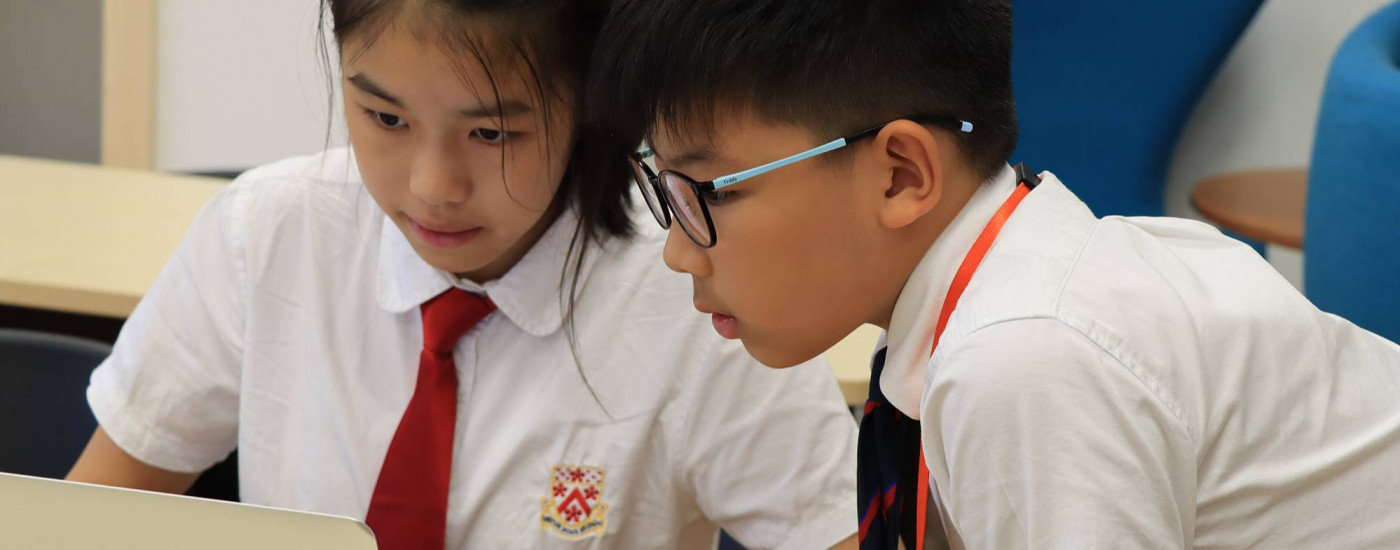School Tips: Parenting in the 21st Century

As a parent, the job description is ever-changing, and this is before you have added the cacophony of hormones that makes your child into a teenager.
The Teenage Years
The teenage years are a period of intense growth, not only physically but also emotionally and intellectually. This can cause confusion and upheaval for many families.
Difficulties quickly begin to arise within households as teens strive to be decision makers. Teenagers push for independence and control of their own lives, whilst also requiring parent’s full financial support. Parents can often feel they are watching their children make the ‘wrong’ decisions and feel the need to intervene and ‘fix’ situations before they make mistakes.
Between the ages of 11-18, society expects children to transition from being fully supported by their parents, to becoming adults who are able to leave home, live independently and be successful and self-sufficient.
Successfully helping your child on this process of transition does not mean allowing them to become over indulged, or never saying ‘no’. Rather, it is the role of parents to involve their teenage child in decision-making processes, and coach them through this process. One successful practice is to create a clear set of family rules that is co-created in discussion between parents and children. As much as teenagers might think they don’t need structure, they do (as do many adults). It is important to have a clear schedule, so that everyone is aware of what is going to happen on a daily basis. This also helps to anticipate changes to the normal schedule and adjust accordingly. Embedded routines can help to ensure necessary tasks such as chores and homework continue to occur on a regular basis, giving structure to family life.
As parents, guiding your teenage child through the decisions such as bed-times, limits on electronic devices and why healthy eating is important, is key to helping them understand why these decisions have been made. Involvement builds buy-in and removes the perception that parents are making decisions in order to ruin enjoyment in their lives.
During the teenage years, disagreements become more difficult. Teenagers can hold grudges and retaliate with spiteful retorts that feel genuinely hurtful. This is all part of pushing back on boundaries. It is completely normal. However, once the anger has subsided, it is important to discuss what was said, why it was said, and ensure that both parties have their chance to talk and clear the air.
As parents, it is important to ask questions, put support in place, and be ready to provide comfort when things inevitably go wrong. It is impossible to learn without first making some mistakes.
Electronic Devices
Televison, laptops, phones, iPads, smart watches (to name just a few) are an inevitable part of our young peoples’ lives. Electronic devices provide us all with technology that can empower young people, and yet is also the cause of much frustration for parents. It is ever changing, and hard to keep control of.
These devices link teenagers with ‘like-minded’ individuals, offer them escapism and potential adventure, but sometimes they can fail to recognise the hazards that also might be involved, and how they might take over from their ‘real-lives’. The ‘Fear of Missing Out’ – or FOMO – is what keeps teenagers checking social media relentlessly and tempting them to the next level of the game.
Both in school and at home, it is important to discuss how they can protect themselves online, ensure they are on apps that are suitable for their age range, and help them understand how they can recognise the signs of addiction to devices.
It is worth knowing that whilst Bill Gates has made his fortune creating technology, the rules for his own off-spring are strict, stating
“We don’t have cell phones at the table when we are having a meal, we didn’t give our kids cell phones until they were 14 and they complained other kids got them earlier."
CNBC Article: ‘Tech-free dinners and no smartphones past 10pm – how Steve Jobs, Bill Gates and Mark Cuban limited their kids’ screen time’
Published Tuesday 5th June 2018
Set time limits that have been discussed and agreed upon. For most devices, it is possible to do this via the settings, so that it can be controlled remotely and eradicates the need for confrontation, which might lead to arguments.
Ensure that they are getting solid, uninterrupted sleep by keeping their electronic devices away from their bedroom. Do not let them take electronic devices to bed. Buy an alarm clock if necessary.
As adults, we can also model good behaviour by following some of the rules of engagement that we establish with our own children where appropriate, and ensuring we are ‘present’ whilst in their company.
Table Talks and Influence
Toddlers and small children are hungry for information, absorbing the world around them like a sponge, and often holding their parents and teacher’s opinions as fact. However, for teenagers, simply giving them information isn’t an effective way to influence them.
This is because adolescents are much more sensitive to whether or not they are being treated with respect. The hormonal changes, combined with social dynamics, make teenagers much more aware of their social status and they become highly sensitive to whether they are being ‘patronised’. When we give adolescents a lot of information, especially when it is information that they don’t really want or that they think they already know, it can feel as if they are being ‘talked down to’ or ‘nagged’. They will shut off as a result. By giving them short, concise information, disseminated as if they are more of an adult peer than your child, they will be able to process, remember, and hopefully utilise advice.
Teenagers often shy away from family social situations, preferring to be in their own space, and are hesitant to have conversations: especially those of a complex or embarrassing nature. It can often be easier as parents to avoid such topics, especially when they feel they might get little in return. However, as teenagers, they are encountering all sorts of outside influence, forming their own opinions of the world, and where they see themselves placed within it. No longer will parents be able to fully protect them from dangers and negativity.
Where possible, we encourage families to have table-conversations, perhaps over dinner (forming a distraction if required), where varied viewpoints can be discussed and analysed. This allows teenagers to not only form their own conclusions, but to recognise that there may be valid opinions that differ from their own. This is vital to form Global Citizenship, which should be held as an everyday ethos rather than a specific school topic.
The Journey
Above all, it is important to remember that they will grow into adults that ultimately will thank you for your input, even if they don’t at the time.
It is their life and their journey. Our role as parents and teachers is not to direct them, but to provide signposts. Not to manage them, but to coach them – however much discomfort it might cause along the way.





